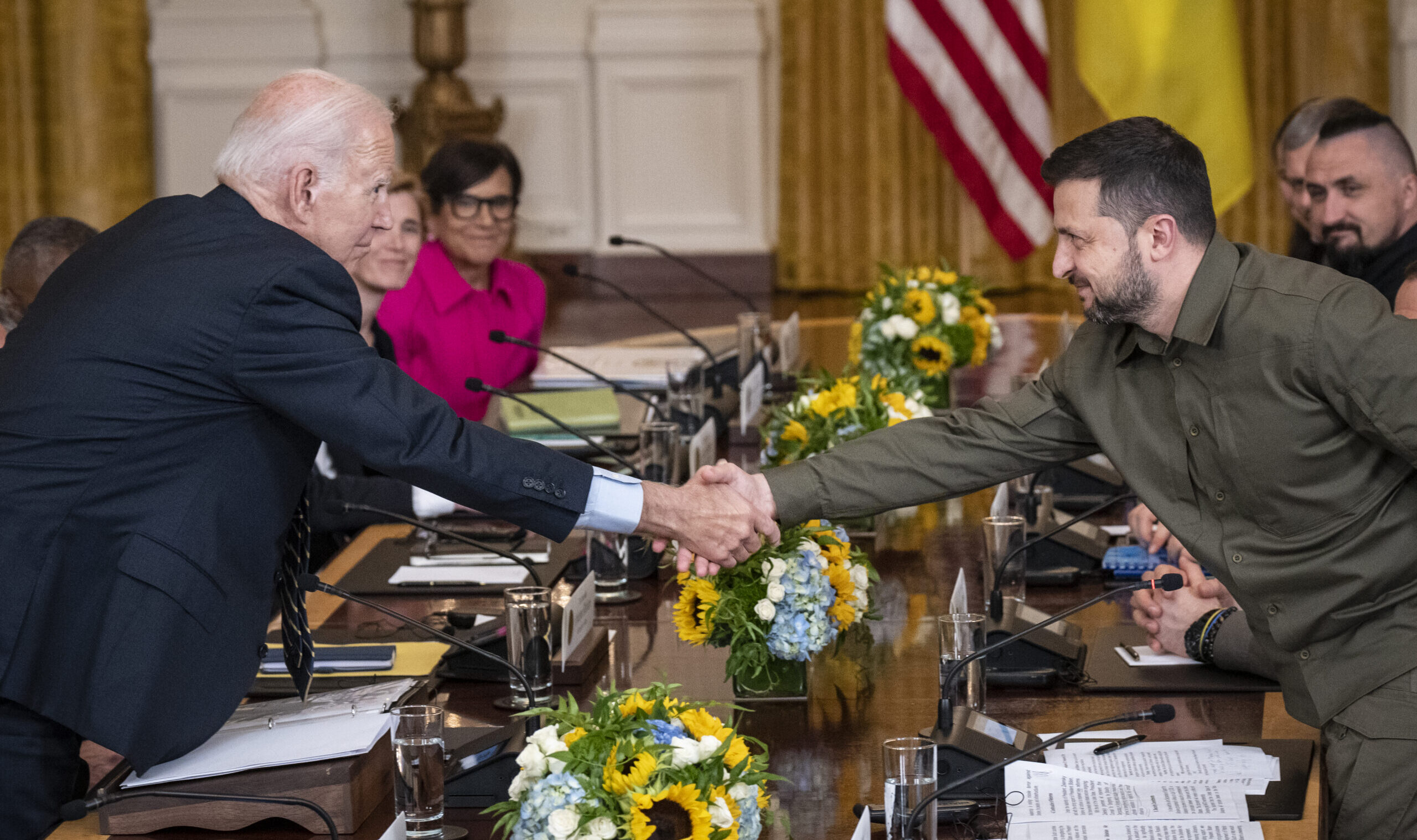Politics
The move is unlikely to only increase the destruction of the conflict, with little strategic benefit to Ukraine and none to America.

On Thursday, it was announced that the Biden administration would allow Ukraine to conduct limited strikes into Russia using American-made arms, owing to recent Russian advances near Kharkov.
Anatol Lieven, the director of the Eurasia Program at the Quincy Institute for Responsible Statecraft, told The American Conservative that the strategic rationale of the Biden administration is that this move will allow Ukraine to attack troop formations and military supplies within Russia and that it will “divert Russian anti-missile defenses from the front lines and towards the defense of Russian towns.” Lieven added that this saying that this strategy will likely not be tactically effective and that it “does not look like a particularly hopeful strategy.”
The Biden administration is also probably motivated as much by domestic considerations as by any hope that this decision might change the on-the-ground situation in Ukraine. Kelley Vlahos, the Quincy Institute’s senior advisor, told TAC that the Biden administration does not “want to be caught going into an election looking as if they caused a defeat in Ukraine.”
Lieven concurred with this assessment: “The Biden administration just wants to keep things as they are until after the next elections, when either Ukraine will be Trump’s problem, or they will think again about the possibility of a peace settlement.”
With these considerations, the Biden administration is constrained to prevent Ukraine from collapsing while not escalating the conflict to the point where Russia might drastically react.
“Ukraine is getting weaker,” said Lieven. “As Russian pressure on Ukraine grows, this line becomes more and more difficult to tread.”
The administration’s predicament is aggravated by the declaration that peace terms are solely for the Ukrainians to decide, especially now that the stated Ukrainian war aims, such as the expulsion of Russia from Ukraine’s pre-2014 borders, seem more and more far-fetched. Lieven noted that “very few military experts” believe that Ukraine’s aims are possible.
While the permission given by the Biden administration is on paper “limited” to strikes on military targets in the parts of Russia near Ukraine’s Kharkov Oblast—presumably Russia’s Belgorod and Kursk Oblasts—it is unclear how these limits will be enforced. Last year, pro-Ukrainian militants launched raids into the Belgorod Oblast using American-provided Humvees. After the vehicles were damaged and abandoned in the raid, the U.S. distanced itself from the operation, stating that the U.S. “does not encourage or enable strikes inside of Russia.”
Indeed, the recent Russian operations near Kharkov, which the Biden administration are using as an excuse for allowing strikes, have been explained by the Russians as a response to Ukrainian strikes on residential neighborhoods in Belgorod, including a recent Ukrainian kamikaze drone attack that killed a mother and infant in a car. Russia’s President Vladimir Putin has stated that Russia has “no such plans” to take Kharkov, and instead that Russia solely intends to create a “buffer zone” along the Russo–Ukrainian border, presumably to allow the interdiction of Ukrainian munitions targeting Belgorod.
The Biden administration’s decision is escalatory, as acknowledged by the earlier policy prohibiting such strikes out of fear that the U.S. might become “more directly involved in the conflict.” According to Vlahos, the Biden administration is ignoring the risk of escalation because Russia did not respond to earlier escalatory measures.
Vlahos singled out how it is entirely possible that the Biden administration—and the Washington establishment more broadly—has grown complacent in its views towards Russia, a situation that risks even further escalation if and when Russia chooses to respond. By “crossing a red line that it laid down years ago,” the Biden administration “risks Russia having to put its foot down.”
“There will come a time when Russia responds and Washington will be surprised,” she said.
While the news cycle has been preoccupied with other matters, the move has not gone unnoticed. In comments to TAC, Rep. Eli Crane (R-AZ) pointed out the risks of this move: “This is the first time a U.S. President has permitted American weapons to be used inside the borders of a nuclear adversary.”
Crane added, “We’re inching closer and closer to a potential nuclear war because the Biden Admin and the Uniparty have let their obsession with Ukraine overshadow the duty they swore to the American people.”
Subscribe Today
Get daily emails in your inbox
He dubbed the move the “America Last escalation.”
The administration’s willingness to prolong the conflict until after the election will also be detrimental to Ukraine. As Vlahos pointed out, given that Russia seems to have momentum on the battlefield, “Ukraine is in the best position it will be to get favorable terms, and prolonging [the conflict] will get them into a worse position with Russia.”
Though this move is escalatory, the Russian embassy has yet to respond to this decision.

